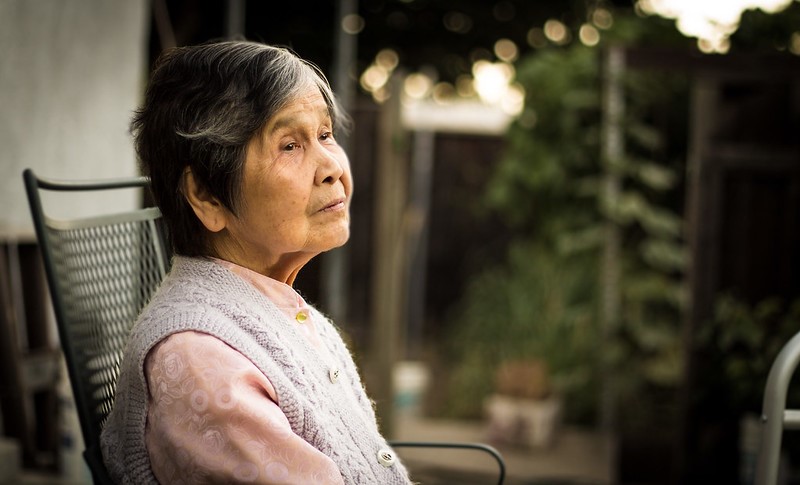SHARES

“As difficult as it is, it is important to treat them with love, compassion, and respect.” says Mary, 43, who is caring for her father with Alzheimer’s disease, and who finds it hard to deal with his fluctuating symptoms.
Indeed, caring for someone with Alzheimer’s disease is extremely challenging. You might feel frustrated, helpless, and sad along the way. However, remember that you are not alone. It is difficult for both you and the one who you are taking care of. Your loved one will also be upset and sad that they are less able to do things on their own and reliant on you. So, it is important to understand the disease and know what is best for both of you. Here are some tips that can help lighten your burden as a caregiver for someone with Alzheimer’s disease:
Understanding Alzheimer’s Disease
One of the best thing you could do is to understand about the disease itself. The more you know about Alzheimer’s disease, the readier you are for the upcoming challenges as the disease progresses. It will give you some reasonable expectations and prevent you from feeling too overwhelmed and frustrated. Also, you can do some preparations earlier to lighten your burden later such as making healthcare and financial decisions.
Communicating
As your loved one’s disease progresses, understanding and being understood is becoming more difficult. Easy confusion, trouble finding words, sudden outburst are all normal. Here are some tips of how to make your communication easier:
- Give empathy, respect, and be calm. Keep the condition relaxed to make the communication easier.
- Keep communication short and clear. Ask only one question at a time.
- Maintain eye contact and smile
- Repeat when necessary
- Always include them in the conversations when they are present
- Avoid baby talk. They will feel hurt and offended being talked down to.
- Do not ask questions that challenge short term memory such as” do you remember what you eat this morning?”
Establish a Routine
Create a daily routine. Doing this can give a sense of familiarity and consistency to someone with Alzheimer’s. Try to avoid significant and sudden changes to avoid confusion. If you want to implement unavoidable changes, try to do it gradually so that your loved one can adjust to surroundings.
Planning activities
It’s good to let your loved one engage in activities. Some sensory experience and socialisation will do more good than harm. However, pace them out and do not overwhelm to the point of over stimulation causing stress. You can start with the patient’s interests and engage them in their hobbies, for instance. Try planning activities and having visitors around the time of the day when they are at their best.
Mood and personality changes
One of the most challenging thing about caring for someone with Alzheimer’s is to deal with mood and personality changes. It can be hurtful to see your loved one are being mean to you suddenly. Remember that it’s not you, and it’s not them either. They are as frustrated and helpless as you are. Respond to their feeling rather than the words they said. Most often the outburst is triggered by stress or failed attempts to communicate. You can make some small changes to relieve their stress and communicate patiently.
Personal care
The most basic task like bathing, eating, and dressing can become a difficult thing for someone with Alzheimer’s, particularly in the more advanced stage of the illness.
1. Bathing
Make things as simple as possible. Run the bath beforehand and have everything you need in hand. Let your loved one do what they are able to do first before you step in to help. Explain to them what are you going to do throughout to help them remain calm.
2. Dressing
Choose clothing that is comfortable and easy to put on and take off. Go for clothes with elastic waist or Velcro instead of zippers and buttons. Let them dress themselves as much as possible.
3. Toileting
As the disease worsens, someone with Alzheimer’s might experience incontinence. Take them to the bathroom regularly without them asking. Look out for signs that they might want to go to the bathroom such as pulling clothes and becoming restless. Limit water intake before bedtime to prevent nighttime accidents. Accident does happen. Be calm and comfort them if they are upset. Always have a spare set of clothing with you when you go out.
Prevent Worsening of Alzheimer’s Disease
About a third of Alzheimer’s are preventable. Engagement in mentally stimulating activities such as reading and learning new things can slow down the progression of Alzheimer’s disease. Likewise, getting enough sleep and managing stressful emotions help in keeping our brain healthy. Try to maintain an active lifestyle together and keep diabetes and high blood pressure under control. Start small with all these habits and make it easy. It is more important to practise them consistently.
Taking Care of Yourself As a Carer
Caring for someone with Alzheimer is tough and can affect you in many ways. While you may prioritise your loved one and giving all your attention to them, it’s important to take a break and focus on yourself. Quality care start with a healthy body and mind. Relieve your stress by talking to someone who you are close with or join a support group. It’s important to take some time to focus on yourself such as engaging in your own hobby, exercise, meditate.
It is difficult to witness what is happening to your loved one, at every new stage of the disease. Take time to reflect the changes and change your expectation accordingly. Doing this can help you better accept and cope with the changes emotionally.
Conclusion
While there is no cure for Alzheimer’s, your care is important to improve your loved one’s quality of life. That’s quite a powerful thing to do. However, taking care of someone with Alzheimer’s disease can be taxing and it’s easy to overlook your own health. Remember that help is always available for both you and your loved one.
References:
1. Eske J. How to care for someone with Alzheimer’s disease [Internet]. MNT. 2019. (Available from: https://www.medicalnewstoday.com/articles/326374#routine; last accessed on 2020 Jul 14)
2. Ultimate guide to caregiving for Alzheimer’s disease [Internet]. Aging.com. 2020. (Available from: https://www.aging.com/ultimate-guide-to-caregiving-for-alzheimers-patients/; last accessed on 2020 Jul 14)
Find a GP/Family Doctor in Malaysia, on GetDoc
Find a GP/Family Doctor in Singapore, on GetDoc
by Chang Xian
View all articles by Chang Xian.







